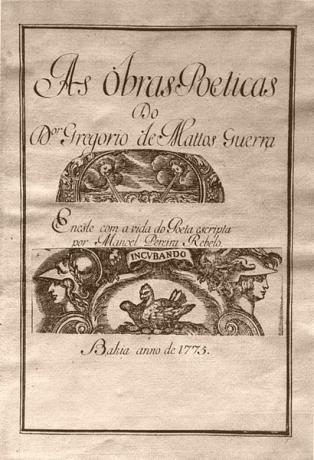In the theory of literature, the white verses, also called “loose verses” are those that do not have rhyme schemes, however they may have metric (measurement).
White verses have been widely used since the 18th century in Brazil, especially in romantic, modern and contemporary poetry.
Note that the verse is the name given to a line of poetry, and the set of them is called a stanza. The rhyme represents the approximation of sounds between the words of a verse.
Metrification and Verification
The art of composing verses and bringing together various aspects of poetic texts, such as musicality, rhyme, rhythm and chaining is called versification.
In turn, the study on the measures presented on the back is called meterification, made through the process called scansão de verses.
In such a way, scansion is the counting of poetic syllables by joining a few syllables when there is a weak and strong sound and only up to the last stressed syllable of each verse.
Remember that meter is the measure of the back and meter is the study of those measures. In addition, we must pay attention to the differences between poetic syllables (which admits sound and musicality) and grammatical syllables (according to the norms of the language) for example:
The / poet / ta is / a / fin / gi / pain - 7 literary syllables
The / po / e / ta / is / a / fin / gi / pain - 9 Grammatical Syllables
Types of Verses
According to the meter (measurement of the verses) used in poetic texts, they are classified into:
- Monosyllable: a poetic syllable
- disyllable: two poetic syllables
- Trisyllable: three poetic syllables
- Tetrasyllable: four poetic syllables
- pentasyllable or Small roundel: five poetic syllables
- hexasyllable: six poetic syllables
- heptasyllable or Bigger round: seven poetic syllables
- octosyllable: eight poetic syllables
- Eneasyllable: nine poetic syllables
- decasyllable: ten poetic syllables
- hendecasyllable: eleven poetic syllables
- dodecasyllable or Alexandrian: twelve poetic syllables
- Barbarian Verse: verse with more than twelve poetic syllables
White Verses and Free Verses
When we talk about white verses, we should not confuse them with the definition of free verses, called irregular verses (heterometric).
We have already highlighted above that the white verses are those that do not have rhyme, however, the verses free represent the verses that do not have a defined measure, that is, they do not follow the scheme of meterification.
Therefore, a poem can present free and white verses at the same time
Example of White Verses and Free Verses
To better exemplify the concept of white and free verses (verses without rhyme and meter), observe the poem below by writer Mário Quintana (1906-1994):
Hope
“Right on the top of the twelfth floor of the Year
Lives a madwoman called Hope
And she thinks when all the sirens
all horns
All reco-recoes play
throw yourself
AND
— O delicious flight!
She will be found miraculously unharmed on the sidewalk,
Again child...
And around her the people will ask:
"What's your name, little girl with green eyes?"
and she will tell you
(You have to tell them all over again!)
She will tell you very slowly so that you don't forget:
— My name is ES-PE-RAN-ÇA..."
Example of White Verses
In the work entitled "my dearest verses” (1967) by the Brazilian writer Guilherme de Almeida (1890-1969), there is a poem called “white verses”, which adds the concept itself, that is, it does not have rhymes:
white verses
"A fine nostalgia goes on and on
the weary stillness of my boredom.
But miss what? from who...
The days
are crystal balls, blue, polished,
smooth without a treacherous edge
where it comes to get caught and torn apart
the veil of thought from another time;
without even the hiding of a cloud
where is a long look
looking at the ashes of these moments;
not a strong shadow to hide
a lost piece of the past...
Everything around me is luminous,
tall and soft, slippery and beautiful;
everything is just a lucid present:
is the perfect negation of longing...
And yet – why? by whom... - I see
and I hear my life pass on earth
singing a slow song
of water that carries flowers on the way down..."



